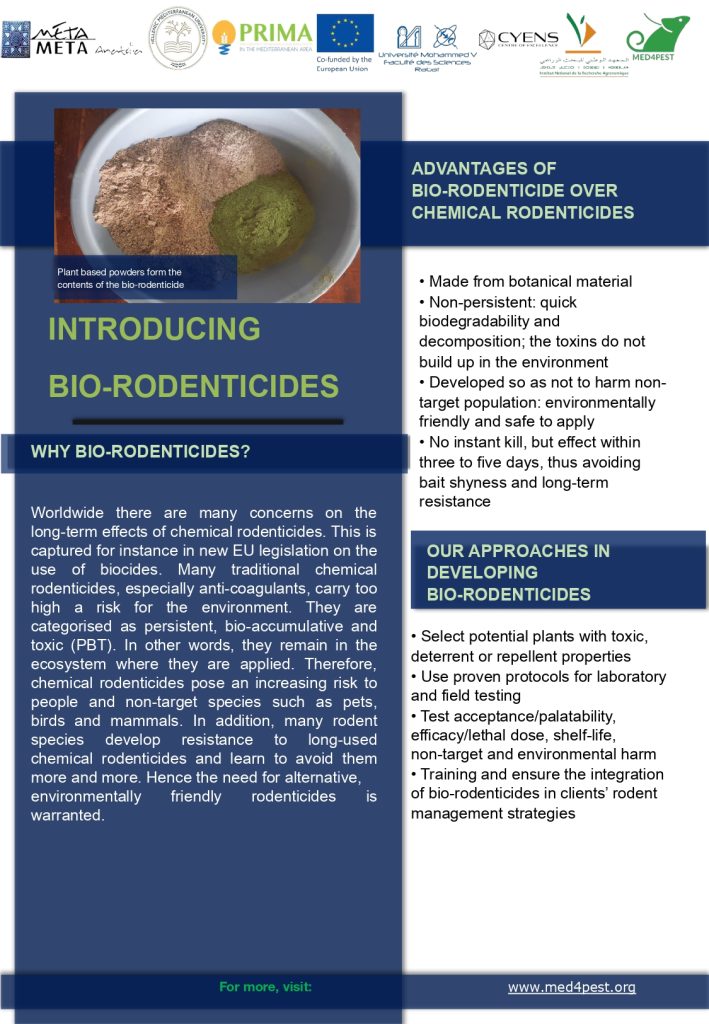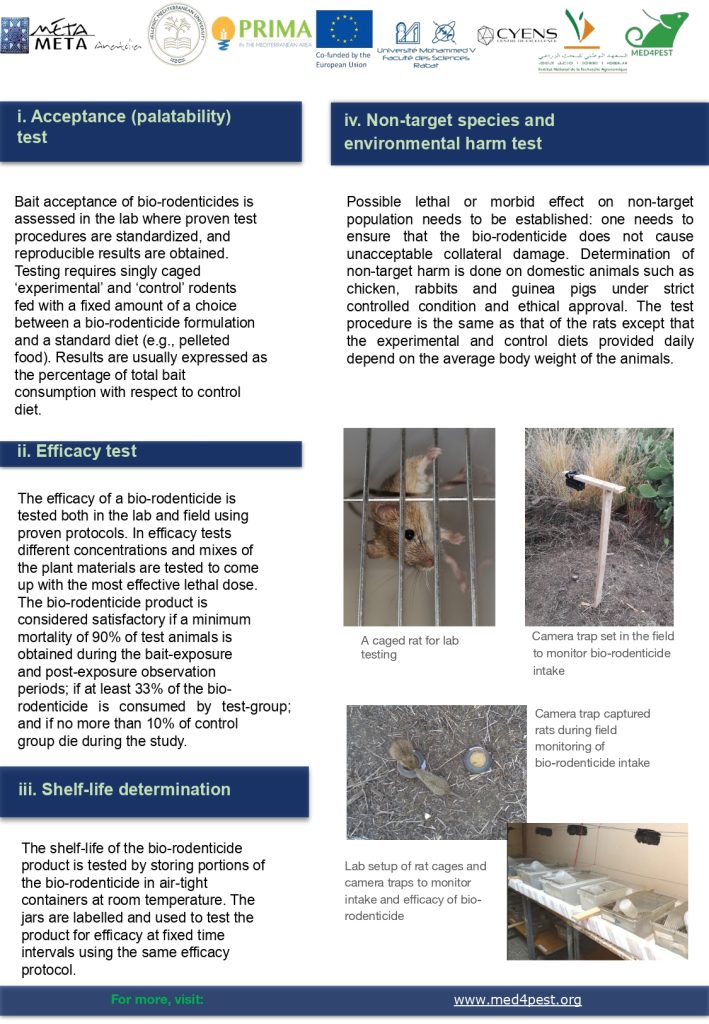Rodent management presents a complex challenge for agriculture and storage sectors, where infestations can cause significant economic losses and disruptions. Historically, chemical rodenticides have been the preferred solution for controlling these pest populations. However, the widespread use of these products has raised growing concerns due to their harmful environmental impacts and risks to non-target species. In response to these concerns, there is a progressive shift towards more ecological and sustainable alternatives, such as bio-rodenticides.
Bio-rodenticides, derived from botanical materials, offer an innovative and environmentally friendly approach to rodent management. Unlike chemical rodenticides, these products decompose quickly in the environment, avoiding toxin accumulation and reducing pollution risks. They are designed to minimize harmful effects on non-target species while providing an effective solution for rodent control. The delayed effect of three to five days observed with some bio-rodenticides helps bypass rodent bait aversion, while decreasing the likelihood of long-term resistance development.
With new European regulations banning persistent and bioaccumulative chemicals, it is imperative to adopt alternative solutions that ensure safety and sustainability. Bio-rodenticides meet this need by offering a rodent control method that respects both environmental and regulatory requirements.
In this poster, we will explore the advantages of bio-rodenticides over chemical rodenticides, highlighting their design, effectiveness, and the rigorous testing that ensures their performance. We will also present the approaches used in developing these products, as well as the control actions implemented to ensure their acceptability and environmental impact.


